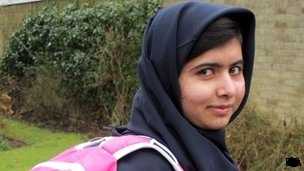
(Reuters) - Five
Egyptians were killed and eight wounded in clashes between Christians
and Muslims in a town near Cairo, security sources said on Saturday, in
some of the worst sectarian violence in Egypt for months.Christian-Muslim confrontations
have increased in Muslim-majority Egypt since the overthrow of former
president Hosni Mubarak in 2011 gave freer rein to hardline Islamists
repressed under his rule.
Four
Christian Copts and one Muslim were killed when members of both
communities started fighting and shooting at each other in El Khusus
north of the Egyptian capital, the sources said. State news agency MENA
put the death toll at four.
An
angry crowd smashed shops belonging to Christians, residents said. A
Reuters reporter saw a burned-out Coptic day care centre and several
damaged shops belonging to Christian traders. An apartment inhabited by
Muslims was also burned.
Residents
said the violence broke out on Friday when a group of Christian children
were drawing on a wall of a Muslim religious institute.
A
Reuters reporter saw what looked like a swastika drawn on the wall.
Muslim residents said it had offended them because it looked like a
cross.
"I saw the kids drawing on
the wall after afternoon prayers so I grabbed them and told them to
remove what they'd just written," said Mahmoud Mahmoud al-Alfi, a Muslim
resident.
Then another man arrived
and started beating the children, drawing a large crowd, he said. The
situation escalated when someone drew a gun and fired into the air,
killing one boy with a stray bullet.
"Suddenly
the area was full of weapons," Alfi said, while weeping Muslim women
sat nearby in front of a house, showing pictures of a man they said had
been killed during the clashes.
The president's office expressed condolences to the victims and vowed to fight any sectarian violence.
"The
presidency ... totally rejects any attempt against the unity and
cohesiveness of Egyptian society and will decisively confront any
attempt to spark sectarian strife among Egyptian people, Muslim and
Christian," according to a statement.
Muslim
leaders were also quick to condemn the sectarian violence which comes
as Egypt struggles with a severe economic crisis and high inflation
after two years of political upheaval.
Grand
Sheikh Ahmed al-Tayeb, of Egypt's leading Islamic authority Al-Azhar,
urged measures to prevent the situation from escalating and to "preserve
the national character which characterises the Egyptian people, Muslims
and Christians," MENA said.
"The
sectarian riots which happened in El Khusus are unacceptable and grave,"
Saad al-Katatni, the head of the Muslim Brotherhood political party,
said on his Facebook website. "There are some who want to set Egypt
ablaze and create crises."
President
Mohamed Mursi, a Brotherhood leader elected in June, has promised to
protect the rights of Copts, who make up about 10 percent of Egypt's 84
million people.
TIGHT SECURITY
On
Saturday the situation was calm but tense in the small town where
Muslims and Christians live close to each other but in separate streets.
Security was tight with police vehicles parked in the main streets.
Police detained 15 people, a security source said.
In
a Christian neighbourhood dozens of angry young men gathered at noon on
Saturday, chanting "with our blood and soul we sacrifice ourselves for
the cross". The crowds left after a priest came and asked them to leave
to calm tensions.
"There are people
who want to cause sectarian strife between Muslims and Christians,"
said a Christian man who gave his name as Kameel. "I've been here longer
than 30 years and I have never seen any violence or extremism in our
area."
Sectarian tensions have
often flared into violence, particularly in rural areas where rivalries
between clans or families sometimes add to friction. Love affairs
between Muslims and Christians have also sparked clashed in the past.
Since
Mubarak was ousted by a popular uprising, Christians have complained of
several attacks on churches by radical Islamists, incidents that have
sharpened longstanding Christian complaints about being sidelined in the
workplace and in law.
As an example, they point to rules that make it harder to obtain official permission to build a church than a mosque.
Last month, a court sentenced a Muslim to death for killing two people in a dispute with Christians in a southern town.
In
October 2011, 25 people, most of them Coptic demonstrators, were killed
in clashes with troops in Cairo.
Sorce:




























.jpg)
.jpg)